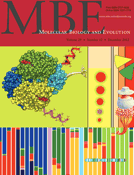
CURRENT OPINION IN GENETICS & DEVELOPMENT
Scope & Guideline
Leading discussions in genetic mechanisms.
Introduction
Aims and Scopes
- Genetic Regulation and Mechanisms:
The journal consistently explores the intricate mechanisms of gene regulation, including transcriptional control, epigenetic modifications, and chromatin organization, which are fundamental to understanding developmental biology. - Developmental Biology and Evolutionary Insights:
It emphasizes the intersection of developmental biology and evolutionary genetics, examining how genetic mechanisms shape development across species and contribute to evolutionary innovations. - Stem Cell Research and Regenerative Medicine:
A significant focus on stem cell biology, including the mechanisms of reprogramming, differentiation, and their applications in regenerative medicine, highlights the journal’s commitment to translational research. - Technological Advances in Genomics:
The journal highlights cutting-edge methodologies such as single-cell genomics, CRISPR/Cas9 technology, and high-throughput sequencing, which are transforming our understanding of genetics and development. - Clinical Applications and Genetic Disorders:
Current Opinion in Genetics & Development addresses the implications of genetic research in clinical settings, focusing on congenital disorders, cancer genetics, and potential therapeutic strategies.
Trending and Emerging
- Epitranscriptomics:
There is a marked increase in studies focusing on RNA modifications, such as N6-methyladenosine (m6A), and their roles in gene regulation and disease, indicating a growing recognition of the importance of post-transcriptional modifications. - Single-Cell Genomics:
The application of single-cell techniques to study development and regeneration is trending, as these methods allow for unprecedented insights into cellular heterogeneity and developmental trajectories. - 3D Genomic Architecture:
Research exploring the spatial organization of the genome and its implications for gene expression and development is gaining traction, reflecting an increasing interest in how chromatin architecture influences cellular function. - Regenerative Medicine and Tissue Engineering:
The journal is seeing a rise in publications related to the use of stem cells and organoid technologies for regenerative therapies, emphasizing their potential in treating various diseases and injuries. - Neurogenomics and Brain Development:
Emerging themes around the genetic basis of neurodevelopment and neurogenetic disorders are becoming more prevalent, highlighting the complex interplay between genetic factors and brain function.
Declining or Waning
- Classical Genetics Approaches:
There appears to be a decline in papers focusing on traditional Mendelian genetics, as the field increasingly shifts towards molecular and genomic approaches that provide deeper insights into genetic mechanisms. - Population Genetics Studies:
Research centered on population genetics and evolutionary dynamics has diminished, perhaps due to a growing emphasis on functional genomics and experimental models that offer more immediate biological relevance. - Basic Mechanisms of Developmental Pathways:
While foundational studies remain important, there is a noticeable decrease in publications that solely focus on classical developmental pathways without integrating new technologies or evolutionary perspectives. - Focus on Non-model Organisms:
There has been a waning interest in studies utilizing non-model organisms in favor of more established model systems, which may provide more immediate experimental control and genetic manipulation capabilities. - Epigenetic Mechanisms in Non-cancer Contexts:
Research specifically targeting epigenetic regulation in contexts outside of cancer has decreased, indicating a shift towards cancer-related epigenetic studies that promise more direct clinical applications.
Similar Journals

GENES & DEVELOPMENT
Empowering Researchers with Cutting-Edge Genetic DiscoveriesGENES & DEVELOPMENT, published by COLD SPRING HARBOR LAB PRESS, stands as a premier journal in the fields of Developmental Biology and Genetics, boasting a remarkable impact factor that reflects its prestigious position in the academic community—ranking Q1 in both disciplines as of 2023. Since its inception in 1987, this journal has been at the forefront of disseminating cutting-edge research, effectively bridging the gap between laboratory breakthroughs and their applications in health and disease. Researchers and professionals rely on GENES & DEVELOPMENT for its rigorous peer-review process and its commitment to promoting innovative studies that unravel the complexities of gene functions and developmental processes. With Scopus rankings placing it in the top percentile among its peers, this journal serves as a vital resource for students and established scientists alike, aspiring to expand their knowledge and contribute to the ever-evolving landscape of genetic and developmental research.

Transcription-Austin
Advancing the Frontiers of Molecular BiologyTranscription-Austin is a leading academic journal published by Taylor & Francis Inc., dedicated to the rapidly evolving fields of biochemistry, biotechnology, and genetics. As a testament to its significance in the academic community, it has been ranked in the Q1 category across all three fields, establishing itself as a premier platform for high-quality research and innovative findings since its inception in 2010. With an H-index reflecting robust academic influence, Transcription-Austin invites contributions that enhance our understanding of transcriptional processes and their implications in various biological contexts. Researchers and professionals alike will find value in its rigorous peer-reviewed articles, which set the stage for future advancements in molecular biology. The journal is based in the United Kingdom and provides a critical resource for scholars aiming to disseminate cutting-edge research to a global audience.

CELL RESEARCH
Exploring Innovations in Molecular BiologyCELL RESEARCH is a premier peer-reviewed journal dedicated to advancing the field of cell biology and molecular biology, published by SpringerNature. With an impressive impact factor and consistently ranking in the Q1 quartile for both cell biology and molecular biology, this journal serves as a pivotal resource for researchers, professionals, and students seeking to explore the latest discoveries and advancements in cellular mechanisms and their implications for health and disease. Since its inception in 1996, CELL RESEARCH has cultivated a distinguished reputation, currently boasting ranks in the top percentile of Scopus categories, reaffirming its influence and relevance to the scientific community. Although it is not an Open Access journal, its rigorous selection process ensures the publication of high-quality articles that contribute significantly to our understanding of life sciences. For those deeply engaged in the realms of biochemistry, genetics, and molecular biology, CELL RESEARCH is an essential conduit of innovative research and critical insights.

MOLECULAR BIOLOGY AND EVOLUTION
Connecting Molecular Biology with Evolutionary DynamicsMOLECULAR BIOLOGY AND EVOLUTION, published by Oxford University Press, stands as a premier journal in the fields of molecular biology, evolutionary biology, and genetics. With a proud history dating back to its inception in 1983, the journal spans a convergence period through 2024, providing an exceptional platform for disseminating high-quality research. The journal is recognized in the top Q1 quartile across multiple categories, including Ecology, Evolution, Behavior and Systematics, and Genetics, reflecting its significant impact and relevance in these disciplines. With impressive Scopus rankings—10th in Ecology and Evolution, 12th in Genetics, and 22nd in Molecular Biology—it serves as a vital resource for scholars aiming to stay informed on cutting-edge developments in evolutionary processes and molecular genetics. While it currently does not offer open access, its curated contents resonate well with an audience of researchers, professionals, and students deeply interested in accelerating their understanding of the complexities of life through an evolutionary lens.

CRITICAL REVIEWS IN EUKARYOTIC GENE EXPRESSION
Exploring the Depths of Eukaryotic Gene RegulationCRITICAL REVIEWS IN EUKARYOTIC GENE EXPRESSION, published by BEGELL HOUSE INC, serves as a vital resource within the fields of Genetics and Molecular Biology. With the ISSN 1045-4403 and E-ISSN 2162-6502, this journal has been contributing to scientific discourse since 1990 and is projected to continue its publication until 2024. Despite its classification in the Q3 quartile for both Genetics and Molecular Biology, its impact on the research community is significant, as evidenced by its diverse range of critical reviews that synthesize and analyze emerging trends and foundational studies in gene expression. The journal, located in the United States at 50 North St, Danbury, CT 06810, offers a platform for researchers, professionals, and students to engage with innovative ideas and methodologies that drive forward the understanding of gene regulatory mechanisms in eukaryotes. Although it currently does not offer open access, the journal's content remains crucial for those dedicated to advancing knowledge in the intricacies of genetic expression.

GENES TO CELLS
Connecting Molecular Insights to Cellular DynamicsGENES TO CELLS is a distinguished peer-reviewed journal published by Wiley, offering valuable insights into the intricate world of cell biology and genetics. With an ISSN of 1356-9597 and an E-ISSN of 1365-2443, this journal has been contributing to the academic community since its inception in 1996 and will continue its publishing journey until 2024. Recognized with a category quartile ranking of Q3 in both Cell Biology and Genetics, and Q2 in Medicine (Miscellaneous) as of 2023, it serves as an important platform for disseminating innovative research and reviews in molecular biology and related fields. Although it does not currently offer open access, the journal caters to a diverse readership by providing comprehensive studies that are essential for professionals, researchers, and students aiming to deepen their understanding of genetic mechanisms and cellular functions. Situated in the United Kingdom, GENES TO CELLS continues to play a pivotal role in shaping the future of biological research.

Genes
Fostering collaboration in the evolving landscape of genetics.Genes is a leading open-access journal published by MDPI that focuses on advancing the field of genetics and genomics. Established in 2010 and based in Basel, Switzerland, this journal has made significant strides in promoting innovative research in both clinical genetics and molecular biology. With an impact factor reflecting its relevance and quality, Genes has been classified in the Q2 quartile for Genetics and the Q3 quartile for clinical Genetics as of 2023. The journal provides an accessible platform for researchers, professionals, and students to disseminate their findings and explore emerging trends across the genetics landscape. Accessible online since its inception, Genes allows for continuous engagement and collaboration within the scientific community, fostering a deeper understanding of genetic mechanisms and their implications in health and disease.

Cell Reports
Shaping the Future of Biomedicine with Cutting-Edge ResearchCell Reports is a prestigious open-access journal published by CELL PRESS that has firmly established itself as a leading voice in the fields of Biochemistry, Genetics, and Molecular Biology. Since its inception in 2012, the journal has provided an innovative platform for rapid dissemination of cutting-edge research, ensuring that high-quality findings are accessible to a global audience. With an impressive impact factor and ranking within the top 10% in its category, as reflected by its Q1 ranking in Scopus, Cell Reports serves a vital role in advancing scientific knowledge and fostering collaboration among researchers. The journal's commitment to the open-access model not only enhances visibility but also encourages the sharing of critical advancements in molecular biology. Situated in the Netherlands, its contributions are recognized worldwide, making Cell Reports an indispensable resource for scientists aiming to stay at the forefront of their fields and facilitate breakthroughs that may shape the future of biomedicine.

EMBO REPORTS
Connecting Researchers with Groundbreaking DiscoveriesEMBO REPORTS, published by WILEY, is a premier journal in the fields of Biochemistry, Genetics, and Molecular Biology, recognized for its rigorous peer-review process and impactful scientific contributions. Established in the year 2000 in the United Kingdom, this journal has maintained a stellar reputation, reflected in its consistent positioning within the Q1 category across these disciplines as of 2023. EMBO REPORTS excels in disseminating high-quality and timely research that addresses fundamental questions and challenges in molecular biology and genetics, making it an invaluable resource for researchers, professionals, and students. With impressive Scopus rankings, including Genetics at the 32nd rank and a 90th percentile placement, it fosters an environment for scholarly exchange and advances in knowledge. While Open Access options are not available, the journal continues to enhance its impact through traditional subscription models, thereby maintaining wide visibility in the scientific community. Its ongoing evolution promises continued relevance and influence until at least 2024.

EvoDevo, published by BMC, is a premier open-access journal dedicated to the fields of Developmental Biology, Ecology, Evolution, Behavior and Systematics, and Genetics. With an impressive Q1 ranking in its category for 2023, EvoDevo stands out as a significant resource for researchers, professionals, and students seeking to explore the intricate relationships between evolutionary processes and developmental mechanisms. Since its inception in 2010, this UK-based journal has provided a platform for innovative research and insights, boasting rigorous peer-review standards that ensure high-quality publications. With the E-ISSN of 2041-9139 and a commitment to freely accessible research, EvoDevo is positioned at the forefront of scientific discourse, making vital contributions to our understanding of biological complexities. As the journal converges years from 2010 to 2024, it serves as a cornerstone for knowledge dissemination, inspiring future research trajectories in evolutionary developmental biology.